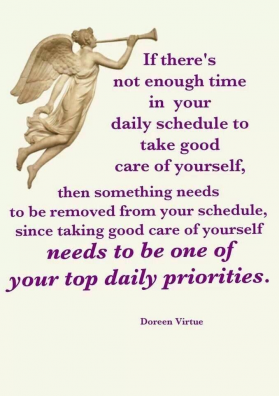Caregiver Burnout Quiz: How Do You Rate?
Are you feeling overwhelmed and stressed out as a caregiver? Take this quiz to find out if you're experiencing caregiver burnout. It's important to focus on self care and know your limitations to prevent caregiver stress and burnout.


Welcome to our caregiver burnout quiz! Take this quiz regularly to assess your level of caregiver burnout and stress.

Understanding Caregiver Burnout:
Providing care for a loved one is a deeply rewarding experience, but it can also bring significant challenges. Over time, the stress, anxiety, and exhaustion associated with caregiving can lead to what we call caregiver burnout.
Caregiver burnout is a state of physical, emotional, and mental exhaustion that results from the demands and difficulties faced by family caregivers.
Recognizing the Signs of Caregiver Burnout:
Signs of caregiver stress and burnout can be subtle and easily overlooked. It's crucial to be aware of these signs, which may include feeling overwhelmed, experiencing sleep disturbances, or developing a sense of detachment or apathy toward caregiving responsibilities.
The Top Three Signs of Caregiver Stress Are:
- Physical exhaustion: Feeling constantly tired and struggling to complete tasks.
- Mental exhaustion: Difficulty concentrating, poor focus, lack of enthusiasm, and potential depression.
- Emotional exhaustion: Experiencing low moods, apathy toward caregiving tasks, feeling overwhelmed, or experiencing isolation.
The Importance of Self-Care:
As a family caregiver, it's vital to prioritize self-care, even though it may be challenging. Reducing stress levels can include getting enough rest, setting realistic goals, and finding time for self-indulgence (even if it seems difficult). Reach out to friends and family for support in providing care and make your own health a priority by incorporating regular exercise into your routine.

Recognize Your Value:
Family caregivers play a crucial role in the caregiving equation. Without you, the entire system can falter. Remember that caregiver burnout is the leading cause of admissions to alternative care settings such as assisted living and nursing homes.
Setting Boundaries and Seeking Help:
While caregivers are inherently selfless, it's essential to understand your own needs and limitations. Neglecting yourself can lead to physical and emotional strain. Remember that you have rights as a caregiver, and there is life after caregiving.

Monitoring Stress Levels:
Regularly monitoring your stress and burnout levels can help you maintain awareness of your health and well-being. This awareness allows you to take necessary steps to reduce or prevent burnout.
The Caregiver Burnout Quiz:
Now, let's determine your caregiver burnout index with 12 questions. Assign points as follows: A = 4 points, B = 3 points, C = 2 points, D = 1 point. Then, tally your score to understand where you stand.
- How often do you get a good night's sleep (7 or more hours)?
a. Every day.
b. Often.
c. Sometimes.
d. Seldom or never. - How often do you engage in recreational activities or hobbies you enjoyed before caregiving?
a. Every day.
b. Often.
c. Sometimes.
d. Seldom or never. - How often do you feel irritable or easily frustrated with others?
a. Seldom or never.
b. Sometimes.
c. Often.
d. Every day. - How often do you feel happy or grateful?
a. Every day.
b. Often.
c. Sometimes.
d. Seldom or never. - How often do you struggle to focus?
a. Seldom or never.
b. Sometimes.
c. Often.
d. Every day. - How frequently do you rely on cigarettes or consume more than 2 cups of coffee or soda to get through the day?
a. Seldom or never.
b. Sometimes.
c. Often.
d. Every day. - How often do you feel exhausted, not wanting to cook, clean, or handle daily tasks?
a. Seldom or never.
b. Sometimes.
c. Often.
d. Every day. - How often do you feel hopeless and helpless about the future?
a. Seldom or never.
b. Sometimes.
c. Often.
d. Every day. - How challenging is it for you to relax without using alcohol or prescription tranquilizers?
a. Every day.
b. Often.
c. Sometimes.
d. Seldom or never. - How often do you feel overwhelmed by everything you need to do?
a. Seldom or never.
b. Sometimes.
c. Often.
d. Every day. - How frequently have you been criticized about your caregiving or told by others that you're stressed out?
a. Seldom or never.
b. Sometimes.
c. Often.
d. Every day. - How often do you wish someone would take care of you and meet your needs?
a. Every day.
b. Often.
c. Sometimes.
d. Seldom or never.
Evaluating Your Results:
Now, calculate your score. Each A = 4 points, B = 3 points, C = 2 points, D = 1 point.
- 48-42: Excellent! You're managing your stress effectively. Keep up your healthy habits and prioritize self-care.
- 30-41: Low Stress Threat. You're handling stress quite well, but don't let your own needs fall to the wayside.
- 18-29: First Alarm Stress Alert. You need to focus on stress management and self-care immediately to prevent further health issues.
- 12-17: Five Alarm Stress Alert. You're already overwhelmed, and your health is at risk. Seek help and prioritize self-care now.
Remember, this self-test is not a medical diagnosis but a tool to help you gauge your stress levels. Take action to protect yourself from the negative effects of chronic stress, and remember that there is life beyond caregiving. Your well-being matters.
Caregiver Relief: A Stress Management Guide has been crafted with you, the family caregiver, in mind. Its purpose is to raise awareness of the stress you may experience and provide you with effective techniques to prevent burnout. Stress management often requires seeking external assistance. Explore The Family Guide to in Home Health Care for additional resources.
To monitor your stress levels, consider taking these stress assessment tests:
